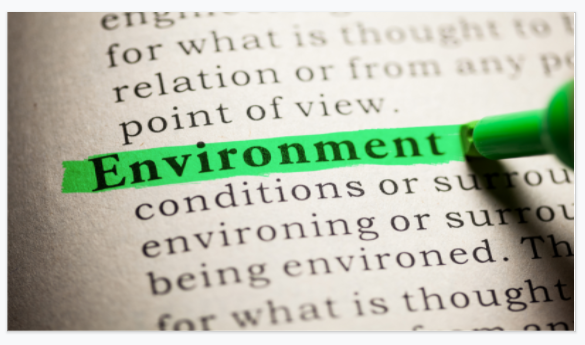Summer Planning with a Deaf or Hard of Hearing Child
Jun 02, 2021
Are you excited for summer? Us too! The FRIEND Academy recently hosted a training for family members sharing tips on how to help your family make the most of it with your deaf or hard of hearing (DHH) child. This is such an important topic because what may be fun for other children can be stressful for your child. In case you missed the training, we will outline the highlights on what to expect and how to prepare for any challenges that may arise.
Time for Summer Fun?
As you are getting ready for summer, you may have some of the following top summer activities planned. Water sports, biking, campfires/camping, nature activities, picnics, community celebrations (hello, 4th of July!), amusement parks and family vacation/travel, anyone?

Yes, please!
But there's only one problem.....
These things are all insanely fun for most people. However, they can be incredibly stressful for children with hearing loss.
A lot of what makes these activities fun for other kids, your child w ith hearing loss does not have full access to, especially when there are big groups of people involved. In these situations, deaf or hard of hearing children cannot communicate as easily with you or with those around them. This can turn "summer fun" into Summer Bummer for your child.
ith hearing loss does not have full access to, especially when there are big groups of people involved. In these situations, deaf or hard of hearing children cannot communicate as easily with you or with those around them. This can turn "summer fun" into Summer Bummer for your child.
How do you prevent this?
So what can you do, as parents, to ensure that your child can still participate in the same activities as everyone else and have fun doing it?
Consider each summer activity and what you need to enjoy it. What senses do you use? What skills do you need to benefit from the experience? Do these activities rely heavily on hearing? If so, how will your child be able to communicate? And, will your child have access to someone who understands their needs? What is the environment like? Is it loud? Are there a lot of people? Who or what are you engaging with? Proper preparation can really pay off when you think about the possible challenges that your child may face. It is a lot to think about, but you can do it! Thinking about it now will avoid worrying about it later.
Here are some challenges that your child may face during these summer activities that can create stress instead of fun.
- A disruption in routine. Your child is accustomed to the support they receive in and out of the classroom and at home. These activities do not always have the same infrastructure to accommodate that support. It becomes difficult to predict what may happen and that uncertainty can cause stress. For other people, the information that we acquire to handle these situations is incidental or “overlearned”. That’s not the case for children with hearing loss.
- Feeling isolated from peers. Most of the time, DHH children are around the kids in their school or their class who have learned how to communicate with them. These summer activities may be around kids who don’t know that your child is deaf or hard of hearing and will not be able to communicate with them effectively.
- Not having access to the typical support systems. A lot of the accessibility devices and services that are available to your child do not allow for these summer activities. They are meant for mostly controlled environments, such as classrooms, home, and work. Outdoor activities can be challenging, especially water activities. Especially when your child depends on technology.
These are just a few examples of some difficulties that may occur. Another important aspect to consider is not only acknowledging these difficulties, but also understanding your child’s reaction to them. How does your child handle routine disruptions? Everyone is different in how they respond to stress, but effective communication and preparation can significantly affect the outcome. Instead of feeling isolated or frustrated by lack of communication, your child can be properly equipped to manage the stress as it comes, which allows them to feel included and have more fun.
Above, we talked about controlled environments. These typically have minimal disruptions within their surroundings and therefore, are more easily managed than others. So what affects the environment? What constitutes “uncontrolled”?
- Space/Distance. How big is this environment? Do people need to project their voices in order to be heard?
- Number of people. The bigger the group, the more there are people talking over each other, speaking louder to hear each other.
- Ambient Noise. What kind of noises are in the background? Is there music?
- Number of events happening in the same space. This takes into account the previous points of ambient noise, number of people, and the space. This can be incredibly overwhelming for anyone, let alone a child with hearing loss.
- Familiarity with the environment. Do you and your child know what to expect or is the environment completely new? This is where preparation is key.
 There can be more aspects to consider, but these are the main points to acknowledge when determining what the state of the surroundings are. They can create barriers for a child with hearing loss because their access to that event or activity becomes extremely limited. A DHH child uses the assistive listening technology to help with that access and the aspects discussed above can directly impact the usefulness of that technology.
There can be more aspects to consider, but these are the main points to acknowledge when determining what the state of the surroundings are. They can create barriers for a child with hearing loss because their access to that event or activity becomes extremely limited. A DHH child uses the assistive listening technology to help with that access and the aspects discussed above can directly impact the usefulness of that technology.
 And then, when the environment causes challenges to access, this can lead to difficulties in engagement with adults, peers, and anyone in that challenging environment. We want to avoid that as much as possible. We want your child to be able to flourish in these environments, despite any challenges that arise!
And then, when the environment causes challenges to access, this can lead to difficulties in engagement with adults, peers, and anyone in that challenging environment. We want to avoid that as much as possible. We want your child to be able to flourish in these environments, despite any challenges that arise!
Can you be more specific?
So, with that mind, what environments could potentially be challenging in these upcoming summer months?
Summer Mingling. Oftentimes, this means talking with friends, family, and people you don’t know. How well is your child able to communicate with these people? A lot of the time, social competence is a necessary skill to have in order to fully benefit from these experiences. Hearing loss can impair social and emotional development which inhibits the access your child has as well as prevent full engagement in the activities.
So now what?
So how do you compensate for these challenges?
These are the key skills that are needed in order for your child to fully benefit from the experience:
- Having direct communication partners. Have someone dedicated to communicating with your child throughout the activities.
- Understanding the social rules. What communication is required throughout the activity? What are the unwritten rules that your child needs to know in order to benefit?
- Having access to and the understanding of group dynamics. Every group and activity is different, so knowing how the group works and how they communicate with each other are essential components to summer fun.
- Having the ability to self-manage. This one may be the most important aspect because there are going to be situations that are unexpected. The reality is that it is impossible to prepare for every single challenge that arises. In the event that one does, how can your child manage on their own? Have a plan in place so that if something does happen, your child can be independent and solve the problem without relying on other people.
There are also some additional logistics to consider.
- What hearing technology and accessories do you have? Do they require chargers? Batteries? Are they fully charged before the activity? Maybe bring some extra batteries or a portable charger to plug into if it’s needed.
- Safety. Are these activities safe for your DHH child? You don’t want to sacrifice safety for a little bit of fun. Sometimes, it’s just not worth it, so if safety is an issue, perhaps consider a different activity for your child.
- Communication. Practice some general communication signals and cues for your child to learn that can apply to a variety of different situations and will let you and any supervisors know if your child needs assistance.
- Make sure any additional assistive equipment is packed. If there are any additional needs that your child has, make sure that appropriate equipment is also available.
- Requesting accommodations if needed for traveling or attending an event. Make the supervisors or coordinators of the event aware of your situation and ask about what accommodations can be made in order to reduce the stress on you. Why worry when you don’t have to? With certain accommodations in place, you and your child will have easier access to that summer fun!
Take a breath.....
Remember to breathe! It’s normal to feel a bit overwhelmed with preparation. You’ve got this though. You have the tools, we have the tips. So, if you’re a bit stressed at the moment, read below for some more tips on reducing the stress and increasing the fun!

- Create a summer routine. Make sure to explicitly share that routine with whomever needs to know, as well as acknowledging the similarities and differences your child may experience from the rest of you. Simply knowing these differences exist is an important step.
- Make it visible. Your child needs to have daily access and exposure to this routine. That way they can familiarize themselves with it. Utilize language that matches their development level so they can fully understand it.
- Details! Provide as much detail as you can for your child. Include and inform them. This way they will be able to see how an idea or a plan can become an actual event. If their development level allows it, include them in the creation of this routine. It will help them manage on their own eventually.
- Use an access lens to identify potential barriers. As we’ve discussed above, ask yourself questions about the possibilities and potential challenges. You can never be too prepared so if you’re asking whether something may be an issue, it could potentially be one, so it’s better to be safe than sorry. Once identified, create a plan and request accommodations as needed.
Want to know more about what you can do to support your child further?
Here are three things you can do:
- Prepare. This includes everything that we talked about above combined with your knowledge of your child’s abilities, interests, and access tools to make the most out of each experience. This may involve front-loading information about the experience, teaching language, talking about or showing the environment, talking about the engagement expectations, and problem-solving potential communication breakdowns.n This will make any incidental learning or information into intentional access and learning.
- Engage. This happens during the event. Support your child by helping them engage at the same independent level as the other children whenever possible. Implement the plan you created. Intervene to support communication and access only when necessary. Directly communicate any unexpected changes in plans with your child. Keep an access lens going without overshadowing your child’s engagement. Have a signal or plan established with your child when they are not feeling successful or overwhelmed. Simply knowing that you’re there to support them can ease their minds and help them feel more comfortable in an unfamiliar environment.
- Reminisce. This occurs after the experience. Talk about what actually happened at the event. Talk about feelings, favorite parts, etc. Repetition is key for children with hearing loss to build lasting memories and benefits from experiences. Reminiscing or recapping the experience allows time to repair or reteach any misunderstandings. This open line of communication really helps you and your child understand the reality of social situations. Once you’ve experienced something you can reflect, look back, and adjust however you need to for the benefit of you and your child.
This approach will support social-emotional development, which also supports many other areas of development and provides an overall sense of well being.
This blog post will hopefully be helpful in your journey to a fun-filled summer for you and your family! If you are looking for more support and trainings like this, plus a community of other families on the same journey, check out the FRIEND Academy. The FRIEND Academy stands for Family Resources, Information and Education for Navigating the Deaf and Hard of Hearing Journey. It will give you the road map and tools to help you along the way. Join Here.


